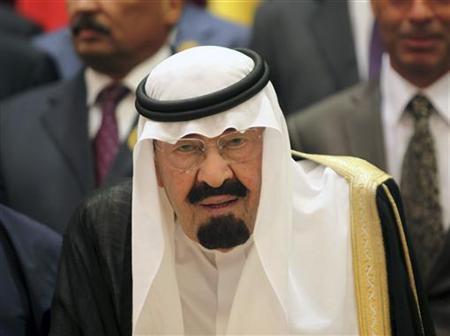'Atheist Thought,' 'Questioning Islam' Defined as Terrorism in Saudi Arabia; Human Rights Group Slams New Law
A human rights group has decried Saudi Arabia's new sweeping set of laws aimed at counter-terrorism, arguing that they greatly stunt any religious or political expression that appears to criticize the government or Islam.

The new laws, approved by Saudi King Abdullah, calls for prison sentences of three to 20 years for any form of terrorist activity, defined as "calling for atheist thought in any form, or calling into question the fundamentals of the Islamic religion on which this country is based."
The new list of decrees also defines the Muslim Brotherhood and some al-Qaeda factions as terrorist organizations.
The new decrees were formed in part to stop Saudis from emigrating the country to fight the civil war in Syria, as the Saudi government is concerned fighters will return to their native country with newfound thoughts of rebellion and attempt to overthrow the Saudi monarchy. Therefore, the new laws also punish any actions that may "harm public order," and criminalize the "[participation] in hostilities outside the kingdom."
Joe Stork, deputy Middle East and North Africa director at Human Rights Watch, has condemned Saudi Arabia's new counter-terrorism laws, saying they seek to further smother free speech and independent expression in the Middle Eastern country.
"Saudi authorities have never tolerated criticism of their policies, but these recent laws and regulations turn almost any critical expression or independent association into crimes of terrorism," Stork said. "These regulations dash any hope that King Abdullah intends to open a space for peaceful dissent or independent groups."
Human Rights Watch goes on to decry the "broad language" found in the new decrees that "prosecutors and judges are already using to prosecute and convict independent activists and peaceful dissidents."
Blogger Brian Whitaker seeks to shed some light on Saudi Arabia's new legislation. Whitaker wrote on the blog Al-Bab, which discusses Arab culture, that "in Saudi terms [the new decree] does have a certain logic. Since the entire system of government is based on Wahhabi interpretations of Islam, non-believers are assumed to be enemies of the Saudi state."
The Wahhabi sect of Sunni Islam is considered to be an ultraconservative interpretation of Islamic teachings.





















